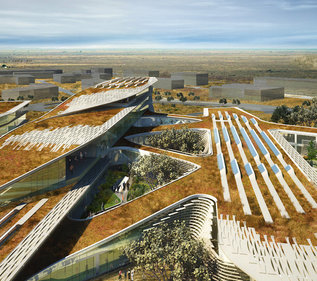2. The meeting was attended by 9 SADC Member States. In attendance were Ministers from Botswana, Mauritius and Namibia, Deputy Minister from and Mozambique while Zimbabwe and Zambia were represented by their Ambassador and High Commissioner respectively to the Republic of Botswana and Angola by the Secretary of State. Swaziland and South Africa were represented by Senior Officials. Also in attendance was the delegation from SADC Secretariat led by the Deputy Executive Secretary for Regional Integration, Dr Thembinkosi Mhlongo.
3. The meeting was officially opened and chaired by the Minister of Environment, Wildlife and Tourism of the Republic of Botswana, Honourable Tshekedi Khama, who is also the Chairperson of the SADC Committee of Ministers of Environment and Natural Resources.
4. Ministers underscored the contribution of natural resources and the environment to the socio-economic development of the region. They observed that SADC is rich in natural resources, such as fisheries, forests, minerals and is home to the largest populations of wildlife, especially elephants and rhinos.
5. Ministers noted that these natural resources are threatened by amongst others illegal harvesting, illegal trade, over exploitation and the impacts of climate change. These challenges undermine progress that the region is making in the fight against poverty, food security, job creation and economic development. They emphasized the need to elevate the fight against poaching and control the illegal trade in wildlife to safeguard the region’s fauna and flora.
6. Ministers noted that the region has developed Protocols on Forestry, Fisheries, Wildlife Conservation and Law Enforcement, Environmental Management for Sustainable Development, and Shared Watercourses; which promotes sustainable management and utilization of natural resources and the environment.
7. Ministers noted progress in efforts towards curbing the poaching of rhinos and elephants, development of capacity in the areas of environmental education, measurement of forest carbon, and negotiation skills for effective engagement at multilateral forums. They also noted that the region has developed a number of Transfrontier conservation areas such as the Kavango-Zambezi (Kaza), Limpopo and most recently the Malawi-Zambia TFCAs. Ministers endorsed the guidelines on the TFCA development and Tourism concessions.
8. During the meeting, Ministers approved new programmes and strategies to further intensify the regional integration agenda, promote adaptation to climate change, reduce greenhouse gas emissions, foster low carbon development pathways and resource use efficiency. They approved the Sub-Regional Action Programme to Combat Desertification (SRAP) and Strategies on Climate Change, the Green Economy, and Law Enforcement and Anti-Poaching. Ministers welcomed the inclusion of the blue economy as one of the new frontiers for SADC Member States.
9. Ministers noted that Member States continue to implement multilateral environmental agreements (MEAs) of priority to the SADC region. In particular, the three Rio Conventions on Climate Change, Biodiversity and Desertification. They therefore underscored the need for the region to develop common positions with a view to speak with one voice in order to achieve outcomes that are beneficial to the region. In this regard Ministers approved a common position for the forthcoming negotiations at the 21st Conference of the Parties (COP21) to the United Nations Framework Convention on Climate Change (UNFCCC) scheduled for December 2015 in Paris, France, as mandated by the SADC Summit of August 2015.
10. The SADC Common Position emphasizes on adaptation while also focusing on mitigation and the measures for achieving these. The measures include finance, technology transfer and adoption, and capacity building. The SADC position is aligned to the African Common Position.
11. On the Convention on International Trade in Endangered Species (CITES) Ministers urged SADC Member States to prepare and make submissions towards the 17th Conference of the Parties to take place in Johannesburg, South Africa, from 24th September to 5th October 2016. The Convention aims to regulate trade in endangered species of wild fauna and flora that are traded internationally.
12. Ministers called upon Member States and other stakeholders to scale-up the implementation of the approved strategies and programmes in order to control and where possible reverse the current trend of environment and natural resources degradation.
13. Ministers expressed appreciation to the Government and people of the Republic of Botswana for hosting the meeting and for the warm hospitality accorded to them and their delegations.
Done at Gaborone, Botswana, this 6th day of November 2015


